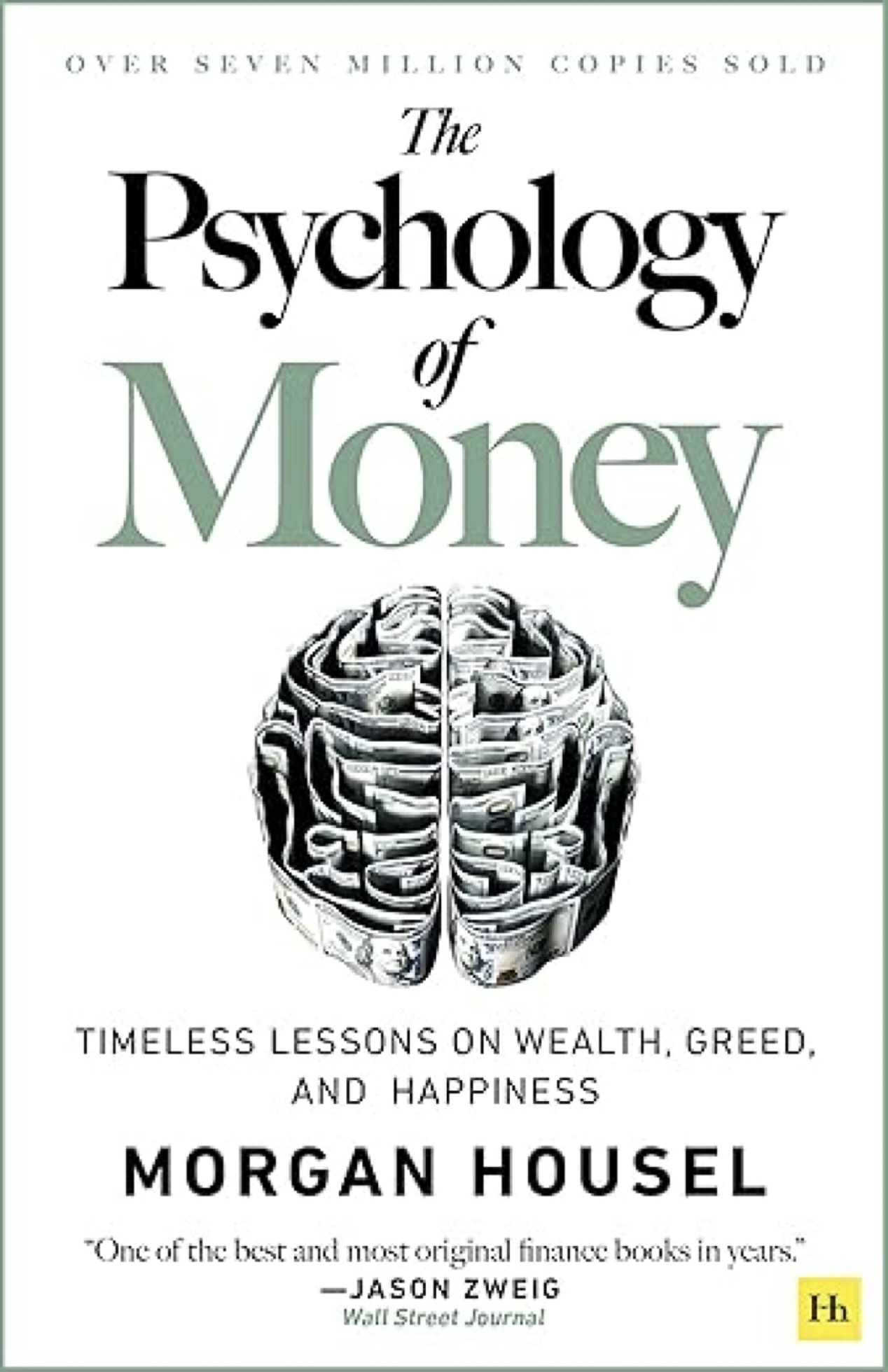
The Psychology of Money: Timeless Lessons on Wealth, Greed, and Happiness by Morgan Housel provides the advice we all need if we seek freedom and independence that wealth can bring. The secrets are to be a frugal saver and an investor that just lets his income compound. You can do this too if you follow his advice.
Introduction: The Greatest Show on Earth
- Unlike physics that is guided by laws, finance is guided by peoples’ behaviors. It is best understood, therefore, through the lenses of psychology and history, not finance. Ordinary people can be wealthy if they have a handful of behavioral skills that have nothing to do with the formal measures of intelligence. This book will help you understand what they are.
1. No One’s Crazy
- We all have our own unique experience with how the world works and that is a big influence on how we deal with money. In theory, people should make investment decisions based on their goals and the characteristics of the investment options available. Unfortunately, that is not what most people do. Willingness to take on risk depends on your personal history and mostly on the conditions when you were born and growing up. Finance is a topic that is more influenced by emotions than facts, which helps explain why we don’t always do what’s best when it comes to money.
2. Luck & Risk
- Luck and risk both happen because 100% of your actions will never determine 100% of your outcomes. The world is too complex. We tend to associate bad outcomes with bad luck as opposed to bad decisions. It’s very hard to identify luck, risk, and skill. Not all success is due to hard work. Avoid trying to copy extreme examples. Look instead for broad patterns that occur often. Luck isn’t something that you can emulate.
3. Never Enough
- Why would a very wealthy man like Bernie Madoff risk everything by starting a Ponzi scheme? The idea here is that he failed to realize that he had enough. At some point as you pile up money it’s time to realize that you have enough and to stop thinking about how you can take risks to increase your wealth further. (Doug: I have enough.)
4. Confounding Compounding
- $81.5 billion of Warren Buffet’s $84.5 net worth came after his 65th birthday. This demonstrates the power of compounding. When something compounds, a little growth serves as the fuel for future growth. The secret is time. To grow your wealth you only need pretty good returns that you can stick with. (Doug: This has worked for me and you can do it too.
5. Getting Wealthy vs. Staying Wealthy
- Getting money and keeping money are two different skills. It starts with a frugal lifestyle, which involves spending less than you make. Keeping money requires the opposite of taking risks. Compounding only works if you can give your assets years and years to grow, kind of like an oak tree. Don’t be in a hurry or you are likely to take too many risks.
- Warren Buffet has lived through 14 recessions and he never panicked and sold during any of them. You need a financial plan, but few plans survive their first encounter with the real world. Your plan needs room for error or a margin of safety.
DrDougGreen.com If you like the summary, buy the book





